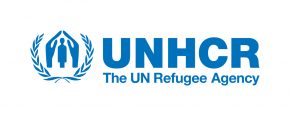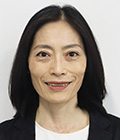United Nations High Commissioner for Refugees (UNHCR) Representation in Japan

What is UNHCR ?

Filippo Grandi
For more than 70 years, UNHCR, the UN Refugee Agency, has led international action to protect refugees, forcibly displaced communities, and stateless people.
Since its foundation, UNHCR has protected the lives, rights, and well-being of refugees, people displaced within their own country, asylum-seekers, former refugees who have returned to their home country, and people who are stateless or whose nationality is disputed.
Our vision is a world where every person forced to flee can build a better future.
Today, UNHCR works in more than 130 countries to ensure that everybody has the right to seek international protection and secured livelihoods. We also strive to secure lasting solutions, putting those most affected at the centre of planning and decision-making.
We are currently witnessing the highest levels of displacement on record since UNHCR’s founding at the end of WWII. People forced to flee their homes because of conflict and persecution, and stateless people with disputed nationality, are often deprived of their fundamental rights to education, healthcare, employment, and freedom of movement.
As new conflicts arise around the world, responding to global displacement situations is increasingly complex and more important than ever. UNHCR remains committed to protect and advocate for all those who are forced to flee their homes.
Message from UNHCR Tokyo Office

Fumiko Kashiwa
Today, more than 120 million people around the world have been forced to flee their homes due to conflict and persecution. In countries and regions such as Sudan, Myanmar, Ukraine, and Syria, humanitarian crises continue to persist, and new conflicts are also emerging.
UNHCR, the UN Refugee Agency, leads internation action to assist refugees, internally displaced people, and stateless individuals. We work in over 130 countries to protect the lives and dignity of people facing these hardships. On the ground, we provide humanitarian assistance including emergency aid, protection, education, healthcare, water and sanitation (WASH), and vocational training, while helping find long-term solutions so they can return home once safe to do so or build a future in a new country.
Japan has long been a strong partner of UNHCR. A broad network, including the government, municipalities, businesses, academic institutions, and civil society, continues expanding the circle of support for those in need in various ways. During the Global Refugee Forum in 2023, Japan served as a co-convenor, over 40 pledges were made nationwide; many of which have already been translated into concrete actions. Meanwhile, in 2026, Japan will mark the 45th anniversary of its accession to the international Refugee Convention.
Through my work with UNHCR in the field, I’ve repeatedly witnessed how Japan’s swift, sustained, and generous support have helped protect the lives of displaced people and supported their efforts to rebuild their lives.
At a time when the international community faces unprecedented challenges, the importance of a whole-of-society approach to refugee assistance is greater than ever. As the UNHCR Representation in Japan, while contributing to efforts toward an inclusive and sustainable society, we continue working to enhance our collaboration with the people of Japan and promote Japan’s unique strengths in humanitarian response and global solidarity—so that refugees, internally displaced persons, and stateless individuals worldwide can achieve a better future.
Contact
United Nations High Commissioner for Refugees (UNHCR) Representation in Japan
Wesley Center, 6-10-11, Minami Aoyama, Minato-ku, Tokyo, 107-0062, Japan
Tel:03-3499-2011 / Fax:03-3499-2272
http://www.unhcr.org/jp/(Official website UNHCR Japan)
https://www.facebook.com/unhcrorjp(Official Facebook UNHCR Japan)
https://twitter.com/UNHCR_Tokyo(Official Twitter UNHCR Japan)
https://www.youtube.com/channel/UCiG4dK6TaS_5-nao6YCd7ZA(Official YouTube Account UNHCR Japan)
http://www.unhcr.org(Official Website, HQ)
http://www.facebook.com/UNHCR(Official Facebook, HQ)


